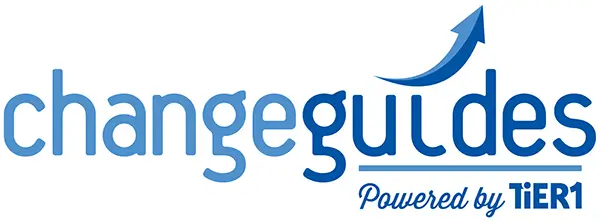How Can Change Management Leverage Artificial Intelligence?
 Artificial Intelligence (AI) has been the buzz in recent years. There was a time not so long ago when AI existed only in Sci-Fi movies but today, it has become a reality and integrated into various parts of our lives. Some people view AI as a powerful tool for innovation and advancement, while others express concern about ethical implications, privacy issues, and job displacement.
Artificial Intelligence (AI) has been the buzz in recent years. There was a time not so long ago when AI existed only in Sci-Fi movies but today, it has become a reality and integrated into various parts of our lives. Some people view AI as a powerful tool for innovation and advancement, while others express concern about ethical implications, privacy issues, and job displacement.
Virtual assistants like Siri and Alexa are now accessible to the masses and have revolutionized the way we interact with technology personally and professionally. AI has transformed business operations by automating repetitive tasks, optimizing decision-making processes, and enhancing overall efficiency. AI enables data analysis that can lead to actionable insights, personalizes client and customer experiences, and predicts analytics for better planning. These innovative technologies continue to become beneficial assets driving innovation, competitive advantage, and change. AI can enhance areas of Change Management such as facilitating communication, streamlining business processes, predicting challenges, and supporting decision-making throughout the change process.
Communication
Communication is at the core of every Change Management initiative. Successful outcomes in Change Management are often the result of well-thought-out communications. Clear and transparent communication raises awareness, creates trust, reduces resistance to change, and ensures that everyone involved in the change is aligned on goals and expectations. Organizations can enhance communications by harnessing the capabilities of Natural Language Processing (NLP), an area of AI that focuses on the interactions between computers and the human language. It involves the ability for machines to understand, interpret, and generate human language in a way that is both meaningful and contextually relevant. NLP enables computers to process and analyze substantial amounts of human language data and facilitates tasks such as language translation, sentiment analysis, and speech recognition, it also enables chatbots, virtual assistants and language understanding in various applications contributing to improving and streamlining the communication processes. Chatbots with NLP can assist in communication by providing instant responses to common queries and help maintain consistent messaging.
Streamline Business Processes
In Change Management, AI can assist in streamlining business processes through automation, data analysis, predictive analytics, and feedback analysis. Automating routine and repetitive tasks can reduce manual effort and allows teams to focus on the more strategic side of Change Management like changing business policies or structure. AI can analyze copious amounts of data to help identify patterns, trends, and potential challenges and can help leaders make informed decisions. Predictive analytics can help identify resistance to changes or roadblocks that may occur and enable initiative-taking measures are planned before issues arise and escalate. Tools like feedback analysis are being automated which allows AI to analyze employee feedback, sentiments, and engagement levels that can gauge the change impact and make needed adjustments throughout change initiatives.
Predict Challenges
AI can leverage predictive capabilities to assist in proactively addressing challenges in Change Management that can promote and encourage a successful transition. Utilizing scenario modeling, risk assessment, and data and sentiment analysis all can be used to predict challenges that may arise in a Change Management initiative. AI-simulated scenarios can be modeled based on various input parameters to help predict outcomes and plan for potential changes. This can help organizations assess the impact of varied factors, anticipate challenges, and make informed decisions on how to best navigate the complexities of the change process. Analyzing historical and real-time data and employee feedback can help identify patterns and anticipate potential challenges based on past change initiatives. Machine learning algorithms which are set of rules or processes used by an AI system to conduct tasks such as discovering new data insights, and patterns, or predict output values from a given set of input data, can assess risk factors and potential obstacles and provide insights into the areas that may face challenges in the change process.
Support Decision Making
Change Management can leverage AI capabilities by automating routine tasks to allow leaders to focus on strategic aspects of Change Management enhancing the overall decision-making process. AI can assist in the Change Management process by predicting potential outcomes and challenges using predictive analytics to enable decision-makers and leaders to proactively plan and allocate resources most effectively. AI capabilities can also assess risks associated with change initiatives allowing leaders to prioritize and address potential issues quickly before they escalate.
In essence, AI brings efficiency, foresight and enhanced communication to Change Management processes contributing to more successful and sustained organizational transformations. The future of AI and Change Management is full of exciting possibilities. As AI continues to grow and advance, it will play a pivotal role in making Change Management more data-driven and adaptable to the unique needs of individual employees within an organization.
